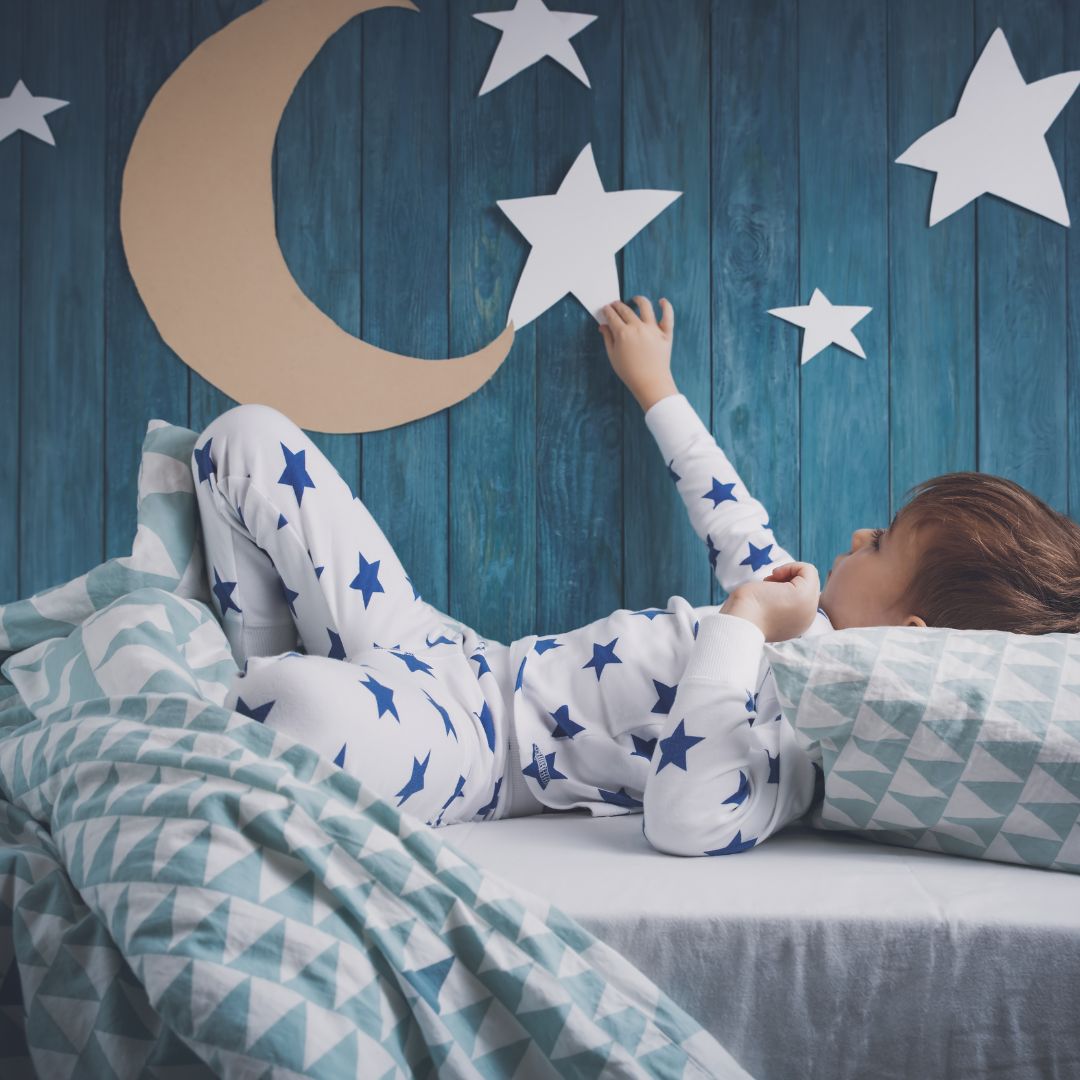Adequate quality sleep is crucial for children's physical and mental development, helping children stay healthy, maintain an appropriate weight, and achieve cognitive and emotional growth.
Unfortunately, many children suffer from sleep disorders. Misdiagnosis of such maladies doesn't help either. These ailments can interrupt sleep and cause problems with their health and development. Plus, children with sleep disorders may have difficulty concentrating, struggle with memory recall, and experience mood swings.
This article aims to help you recognize the signs of childhood sleep disorders and learn how to manage their symptoms so your kids can get the necessary sleep.
5 Types of Childhood Sleep Disorders
Below are examples of childhood sleep disorders, their prevalence, and what may trigger them.
1. Childhood parasomnia
Parasomnias are undesirable events or behaviors that happen around or during sleep. This disorder in children often shows up as waking up confused, sleepwalking, night terrors, sleep paralysis, and bed wetting.
Many parasomnias are linked to other sleep disorders, particularly sleep apnea and restless leg syndrome. Various reasons can also trigger different parasomnias, but disrupted sleep and other health issues are common causes.
Parasomnias are almost extremely common among children, but they generally grow out of them over time.
2. Childhood insomnia
Insomnia is a condition that makes it difficult for people to fall, stay, and return to sleep.
If your child experiences difficulty sleeping or staying asleep more than three times a week over a prolonged period, it may be a case of insomnia. If so, it's time to consider seeking remedies for sleeplessness.
A child's pre-sleep habits can cause difficulty sleeping. Immersive activities can give a tired kid a "second wind" and too much energy that may keep them from sleeping. Stress from school or at home and sugary or caffeinated drinks can also cause insomnia.
Children who don't get enough sleep are often irritable, fall asleep in the middle of the day, and have trouble concentrating to the point that others notice. Insomnia is widespread, affecting 20% to 40% of children and adolescents.
3. Childhood restless legs syndrome (RLS)
RLS is a disorder that expresses itself in an urge, often accompanied by pain or discomfort, that won't go away until a person moves their legs. It manifests more at night but can also occur during long periods of stillness, such as in long car rides. When RLS disrupts sleep, children may develop behavioral problems.
While the causes for RLS are unclear, iron deficiencies and certain medications can trigger increased urges. Dopamine imbalances, which can come from genetic and dietary causes, can also cause RLS.
If your child reports a strange feeling that seems to disappear when moving their legs, they likely have RLS.
4. Childhood sleep apnea
A child experiencing difficulty breathing while asleep may have childhood or pediatric obstructive sleep apnea. It can happen several times a night but may sound like regular snoring. In more severe cases, your child may be restless in their sleep, occasionally snorting, coughing, or choking.
The leading causes of childhood sleep apnea are related to a child's body structure. For one, their tonsils or adenoids—the tissues in the nose—may be too large. It's also possible the structure of their head or face is responsible for the condition. Obesity can also cause sleep apnea, though it's more common in adults.
Sleep apnea can hinder restorative sleep, which can cause attention and learning problems and irregular high-energy periods. Thankfully, childhood sleep apnea is rare, affecting only 1% to 10% of children.
5. Childhood narcolepsy
Narcolepsy is a neurological disorder that makes it difficult for the brain to manage sleep and wakefulness.
While symptoms of narcolepsy vary between cases, narcoleptic children often show exhaustion throughout the day, experience hallucinations, and suddenly fall asleep or have a sleep attack in the middle of an activity. Sleep attacks have no confirmed triggers, but stress or outbursts of emotion like laughing and crying can cause sudden loss of strength.
Scientists believe autoimmune disorders, brain injuries, infections, and environmental pollutants are the causes of narcolepsy. Genetics also play a role, so you should watch out if you have a family history. Thankfully, pediatric narcolepsy is extremely rare and likely affects only 20 to 50 in 100,000s children.
How to Manage the Symptoms of Childhood Sleep Disorders
As a parent, you want restful sleep for your children. Read on for ways to ease the symptoms of childhood sleep disorders.
1. Set a regular bedtime routine for your kids
Establishing a consistent bedtime routine helps your child's body recognize it's time to sleep. Activities like warm baths, reading, and listening to calming music before bedtime can help relax and prepare them for sleep.
2. Steer kids away from their triggers
Observe your child's behavior to identify triggers that may excite or stress them. For example, sugary snacks, caffeinated drinks, and loud, exciting media can re-energize your kid and impede their sleep.
3. Design the child's bedroom environment for sleeping
A calm, dark, and quiet bedroom is conducive to sleep. Blackout curtains, a comfortable mattress, and proper ventilation can all provide the best environment for a good night's sleep.
4. Consider homeopathic treatment
Homeopathic medicines are a gentle and effective alternative to harsher pharmaceutical drugs, which can have severe side effects. These remedies induce drowsiness and improve sleep quality for children and adults. You should consult a homeopathic doctor to create a holistic treatment for your child.
Sweeter Dreams with Homeopathic Remedies
Children need proper sleep to grow healthy and happy, but childhood sleep disorders can interrupt their rest and impede their development. Your duty as a parent is to identify and navigate these roadblocks to improve your kids' quality of life.
Forces of Nature is here to help. We offer FDA-approved remedies for a wide variety of ailments, including sleeplessness. Check out our selection of homeopathic medicine today!
5 Types of Childhood Sleep Disorders & Symptoms

By Dr. Peter Klapper Ph.D.



